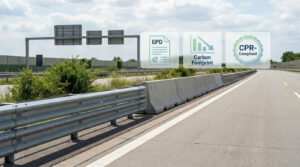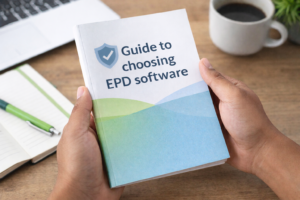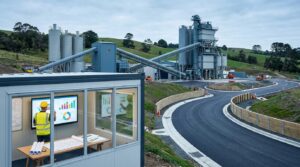
Manual consolidation and limited integrations can slow sustainability reporting – especially as requirements expand to Scope 3 and frameworks such as CSRD and ISO 14040/44. Tools like openLCA support advanced modelling; however, some organisations evaluate alternatives when they want packaged workflows, pre-built connectors, and managed onboarding to reduce implementation effort.
This guide highlights openLCA alternatives that emphasise workflow-oriented LCA, automated data exchange with ERP/SCM (scheduled or event-driven, depending on setup), and configurable dashboards and exports to support reporting.
The goal is to help sustainability specialists and supply-chain teams reduce manual work, standardise processes, and shorten reporting cycles. Capabilities vary by plan, region, and implementation – always verify modules, integrations, and SLAs for your use case.
Understanding the Need for openLCA Alternatives
While openLCA is free, open-source, and capable of advanced LCA modelling, some manufacturers and sustainability teams evaluate alternatives when they need packaged workflows, pre-built integrations, multi-user governance, and managed onboarding to reduce time and effort.
Modern programs often require streamlined data collection and presentation, plus automated exchange with ERP/PLM/SCM and supplier systems. Using automation (scheduled or event-driven, depending on setup) helps cut manual steps that can introduce errors and slow reporting – especially as requirements expand to Scope 3 and frameworks such as CSRD and ISO 14040/44.
Other solutions focus on simplifying these processes with workflow-oriented UX, automated data exchange, and configurable dashboards and exports to support reporting (not legal advice). Platforms such as Ecochain are often evaluated for this mix of capabilities, alongside onboarding and customer success resources that can help teams get productive faster.
Ultimately, the right choice depends on your use case, data landscape, and assurance needs. Confirm modules, integrations, level of automation, governance controls, and SLAs in the plan and contract you select.
Key Features to Evaluate When Choosing openLCA Alternatives

When you’re selecting a life-cycle assessment (LCA) tool for your organisation, a handful of capabilities tend to determine day-to-day effectiveness. These are often what distinguish workflow-oriented platforms from basic LCA setups (including open-source installations) and help unlock more efficient, accurate footprinting.
Intuitive dashboards & UX
Clear, configurable dashboards put LCA indicators and related KPIs at a glance, reducing time spent assembling spreadsheets and hunting for results. A user-friendly interface shortens onboarding and supports cross-functional collaboration so teams can move faster once live. Basic tools can offer similar visibility, but often require custom templates or additional setup to achieve it.
Seamless data integration (automated where possible)
Manual entry is slow and error-prone. Platforms like Ecochain support automated data exchange with ERP/SCM and supplier systems (scheduled or event-driven, depending on setup), which helps standardise inputs and cut rework. More basic tools can connect via imports, scripts, or APIs, but typically need extra configuration to reach the same level of automation.
Scope 3 emissions tracking
Both advanced and basic tools can model Scope 3. The practical difference is the degree of automation: workflow-oriented platforms provide connectors and guided processes that reduce manual mapping and aggregation; with basic tools, teams often rely on CSV processes or custom pipelines to assemble the same view.
Compliance-supporting reporting (CSRD / ISO 14040/44)
Modern platforms include guided workflows and exports that support reporting aligned to CSRD and ISO 14040/44 (not legal advice). Basic tools can generate compliant outputs, too, but may require more manual formatting, documentation, or governance outside the application.
Onboarding & support
Community forums and public guides are valuable, especially in open-source ecosystems. If you need predictable timelines, role-based training, and help with data migration, look for dedicated onboarding and support with defined SLAs. Solutions such as Ecochain provide implementation assistance and customer success resources to reduce friction and accelerate adoption.
Putting it together
In practice, Ecochain LCA software typically offers intuitive dashboards, automated data exchange (scheduled/event-driven), guided Scope 3 workflows, CSRD/ISO-aligned reporting support, and structured onboarding & support. Basic LCA tools can reach comparable outcomes, but often with more custom configuration, scripting, and template work. As always, feature availability varies by plan, region, and implementation – so confirm modules, integrations, and SLAs for your specific use case.
Comparing openLCA Alternatives: Ecochain vs SimaPro vs GaBi vs OneClickLCA
As reporting requirements tighten (e.g., CSRD; ISO 14040/44), many teams reassess whether their setup fits their data flows, workflows, and governance. openLCA supports advanced LCA modelling; some organisations also evaluate alternatives when they want packaged workflows, pre-built integrations, and structured onboarding to reduce time-to-value.
Below are four commonly evaluated options – summarised by usability, integration approach, compliance-supporting workflows, and typical industry fit.
Ecochain: A Powerful, User-Friendly Solution
Ecochain pairs an intuitive, dashboard-driven UX with automated data exchange to ERP/SCM and supplier systems (scheduled or event-driven, depending on setup). It supports Scope 1–3 tracking and guided exports/workflows aligned to reporting frameworks such as CSRD and ISO 14040/44 (not legal advice). With structured onboarding and customer success resources, teams can standardise processes and reduce manual handling. This mix often suits manufacturers and multi-tier supply chains.
SimaPro: Deep, Scientific Modeling And Methodology
SimaPro is known for deep scientific modelling and method transparency, making it a strong choice for researchers and specialist practitioners. The trade-off for that depth is a steeper learning curve; integrations and report templates are powerful but may require additional configuration to streamline day-to-day workflows.
GaBi: Granular Scenario Modeling
GaBi offers extensive databases and granular scenario modelling, which appeals to large enterprises and consulting teams running complex product and supply-chain analyses. Its breadth typically benefits expert users and clear modelling governance; less specialised teams may prefer more guided, workflow-centric tools.
OneClickLCA: Carbon Audits for the Construction Sector
One Click LCA is widely used in the construction/AEC space for project-based LCAs and EPD generation, and it supports built-environment certifications (e.g., LEED, BREEAM). For organisations outside construction, suitability depends on required modules and connectors; review fit against your processes and data landscape.
How they compare in practice
- Ease of use. Ecochain and One Click LCA emphasise guided workflows and accessible dashboards; SimaPro and GaBi provide expert environments that generally require more onboarding.
- Data integration. Ecochain supports automated data exchange with ERP/SCM (scheduled or event-driven, depending on setup). SimaPro, GaBi, and One Click LCA offer integrations via connectors/APIs; the degree of turnkey automation varies by plan and configuration.
- Automation for compliance-supporting reports. All four can support reporting through exports and workflows; automation depth differs. Ecochain focuses on guided, audit-ready outputs; SimaPro and GaBi often rely on configured templates/processes; One Click LCA provides construction-specific reporting aids.
- Industry fit. Ecochain: manufacturing & supply chains. SimaPro: research/consulting. GaBi: large enterprises & expert analytics. One Click LCA: construction & building materials.
- Onboarding & support. Ecochain typically includes structured onboarding and support; SimaPro and One Click LCA offer moderate levels depending on plan; GaBi deployments often assume expert-led implementation.
Capabilities and integrations vary by plan, region, and implementation. Always confirm modules, automation level, and SLAs in your contract.
Industry Applications of openLCA Alternatives: Manufacturing, Construction, and Beyond
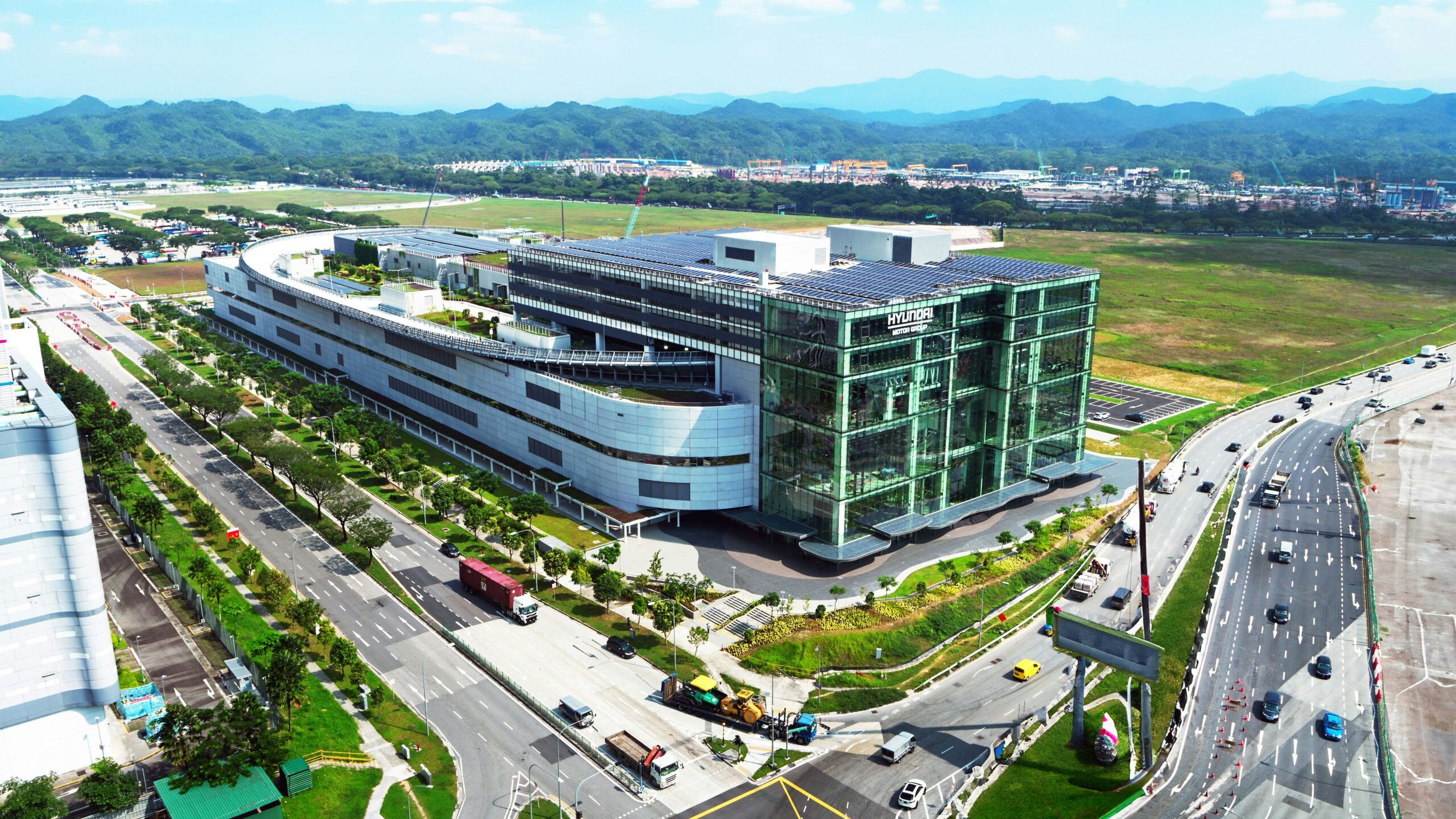
Finding the right software to track environmental performance depends on your industry, data landscape, and reporting needs – there’s no one-size-fits-all choice among openLCA alternatives. Each option has distinct strengths that may align better with certain use cases.
Ecochain is often evaluated by manufacturing and supply-chain teams. It supports product/BOM-level and portfolio footprinting with configurable dashboards and automated data exchange to ERP/SCM (scheduled or event-driven, depending on setup). The goal is to reduce manual handling so decision-makers can work from a consistent set of metrics.
One Click LCA focuses on the construction (AEC) ecosystem, offering tools for EPD generation and supporting built-environment certifications such as LEED and BREEAM. That domain focus can be a strong fit for contractors, architects, and building-materials producers who must align reports to project and certification requirements.
GaBi is chosen by technical specialists and LCA consultants for scenario analysis and life-cycle costing (LCC) across complex products and supply chains. Its depth typically benefits expert users and clear modelling governance; teams prioritising rapid onboarding or highly guided workflows may prefer more workflow-oriented platforms.
As always, confirm the modules, integrations, level of automation, reporting templates, and SLAs available in your plan and contract to ensure the platform fits your specific requirements.
Real-World Success Stories of Companies Switching to openLCA Alternatives
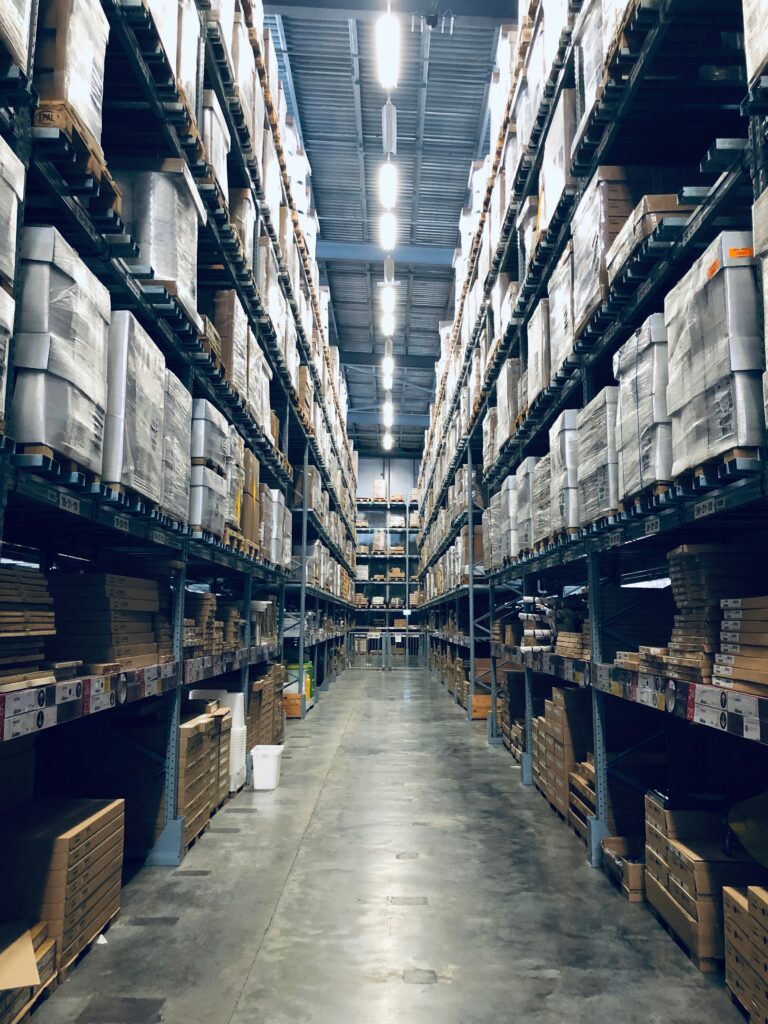
Many organisations move from openLCA to Ecochain LCA to simplify Scope 3 tracking. By reducing manual spreadsheets and standardising data flows, teams often report shorter preparation cycles and greater confidence in the consistency of their results – freeing time to focus on actual reduction initiatives across the value chain.
In another case, a European furniture brand highlighted that implementation support and training helped their teams onboard quickly. With an intuitive, workflow-oriented UX and automated data exchange (scheduled or event-driven, depending on setup), supply-chain managers were able to act on insights faster and embed improvements across operations.
How openLCA Alternatives Streamline Sustainability Reporting and Regulatory Compliance
Many organisations move from openLCA to Ecochain LCA software to simplify Scope 3 tracking. By reducing manual spreadsheets and standardising data flows, teams often report shorter preparation cycles and greater confidence in the consistency of their results – freeing time to focus on actual reduction initiatives across the value chain.
In another case, a European furniture brand highlighted that implementation support and training helped their teams onboard quickly. With an intuitive, workflow-oriented UX and automated data exchange (scheduled or event-driven, depending on setup), supply-chain managers were able to act on insights faster and embed improvements across operations.
Note: Outcomes depend on scope, data quality, and execution. Always validate expected time-to-value and results with a pilot and customer references for teams like yours.
Emerging Trends in LCA Software
As sustainability requirements grow more stringent and wide-ranging, tools positioned as alternatives to openLCA continue to evolve in three notable ways.
AI-assisted analytics
Vendors are increasingly embedding AI to speed analysis and surface actionable insights. Used well, these features help teams prioritise improvement opportunities by highlighting patterns and likely hotspots. Results still depend on underlying data quality and model assumptions, so human review remains essential.
Automated data exchange with ERP/SCM
Continuous data flows are becoming standard. Rather than manual spreadsheets, platforms now support automated data exchange with ERP/SCM and supplier systems – via scheduled jobs or event-driven updates, depending on setup. This reduces manual effort and cuts the risk of transcription errors, while keeping inventories more current across Scope 1, 2, and 3.
Enhanced Scope 3 visibility
Modern LCA tools provide richer pipelines for supplier data and category-level estimates, improving transparency into indirect impacts. Combined with configurable reports and documentation, these capabilities support reporting aligned to frameworks such as CSRD and ISO 14040/44 (not legal advice).
Note: Capabilities vary by vendor, plan, and implementation. Always validate definitions, data sources, and governance before relying on automated outputs.
Practical Tips for Choosing the Right openLCA Alternative for Your Business
Choosing an alternative to openLCA starts with your sustainability goals and operational workflows. The right fit can reduce manual effort, shorten reporting cycles, and support alignment with evolving frameworks (e.g., CSRD, ISO 14040/44).
What to weigh up
Ease of use. Intuitive interfaces and clear visualisations help teams work efficiently. Where available, automated data capture and helpers for complex calculations – together with practical training – can accelerate time to value.
Integration potential. Solutions that support automated data exchange with ERP/PLM/SCM and supplier systems – whether scheduled or event-driven, depending on setup – reduce transcription errors and keep Scope 1, 2, and 3 inventories more current.
Compliance-supporting workflows. Look for guided workflows and exports that support reporting aligned to CSRD and ISO 14040/44 (not legal advice). Clarify what’s included out of the box versus what requires configuration or services.
Ongoing support. Consider onboarding, documentation, SLAs, and access to a responsive help channel so adoption and long-term operations run smoothly.
How this plays out in practice
Teams often evaluate Ecochain alongside basic LCA setups (including open-source installations). In many deployments, Ecochain provides an intuitive interface, automated data exchange to core business systems (scheduled/event-driven per configuration), guided reports and exports aligned to CSRD/ISO, and structured onboarding and customer support. Basic LCA alternatives can reach comparable outcomes, but the level of polish and automation can vary; integrations may require additional configuration or scripting, compliance outputs may rely more on templates and external processes, and support typically ranges from community resources to paid services.
Note: Capabilities vary by plan, region, and implementation. Always confirm modules, integrations, governance, and SLAs for your specific use case.
When is openLCA Enough?
With so many alternatives on the market, it’s easy to assume a paid platform is always the answer. In practice, openLCA can be a perfectly sensible choice for certain teams and scenarios.
Where openLCA can fit well
- Academic/research use or method-development where transparency and controllability of models are paramount.
- Small teams or limited budgets, prioritising core LCA capability over packaged workflows.
- Technically confident users who are comfortable with scripting, templates, and DIY integrations.
- Prototyping/pilots to test boundaries and methods before scaling into managed tooling.
Trade-offs to plan for
- More manual configuration and data handling (e.g., imports, templates, spreadsheet work).
- Greater reliance on community resources and internal expertise for onboarding and support.
- Additional effort to assemble reporting packages aligned to frameworks (e.g., CSRD, ISO 14040/44)—tools can support the work, but governance and formatting are often handled outside the box.
If your needs are modest, your team is method-savvy, and cost control is critical, openLCA may be “enough.” As scope grows – more suppliers, automated data flows, multi-team governance, or tighter reporting timelines – it can be useful to evaluate managed, workflow-oriented platforms alongside openLCA.
Limitations of Commercial LCA Tools
Paid alternatives to openLCA can accelerate work—but they also introduce trade-offs to consider before you commit.
Total cost of ownership.
Licensing, add-on modules, services, and training can add up. Balance these costs against expected productivity gains (e.g., fewer manual steps, faster cycles) and capture assumptions in a simple ROI model.
Feature fit vs. complexity.
Rich feature sets can improve depth and collaboration, but they may also increase configuration and training needs. Map must-have use cases first; avoid paying for capabilities you won’t use in the next 12–24 months.
Data portability and exit options.
Commercial platforms may tie workflows to proprietary formats or processes. Review export options, API access, and termination terms up front to reduce switching risk later. Clarify what you keep (data, models, templates) and in what format.
Governance and change management.
Introducing a new tool often requires role definitions, approvals, and documentation standards. Plan for onboarding, admin responsibilities, and internal support channels so the rollout sticks.
Final Words
Choosing an alternative to openLCA can boost team productivity, improve decision-ready insights, and simplify reporting – if the platform fits your workflows and governance. Invest time up front to match features to your use cases, confirm integrations and data-export paths, and align on compliance-supporting outputs (e.g., CSRD, ISO 14040/44). With clear requirements and a structured pilot, you’ll be well placed to select the best fit for your organisation. FAQs on openLCA alternatives
Q: How does Ecochain compare to SimaPro and GaBi?
A: Ecochain focuses on workflow-oriented product and supply-chain footprinting with configurable dashboards, automated data exchange to ERP/SCM (scheduled or event-driven, depending on setup), and guided exports/workflows aligned to reporting frameworks such as CSRD and ISO 14040/44. SimaPro and GaBi provide expert modelling environments and extensive databases suited to advanced analysis; they may require more configuration and onboarding for day-to-day workflows.
Q: Which LCA software is most suitable for beginners?
A: Ease of onboarding depends on team skills, data readiness, and integration scope. Many teams new to LCA find workflow-oriented tools like Ecochain straightforward, but the safest approach is to run a guided pilot on your own data to validate time-to-value.
Q: What industries benefit most from Ecochain?
A: Ecochain is commonly evaluated by manufacturing and supply-chain–centric organisations (e.g., consumer goods, industrial equipment, commercial furniture, apparel/textiles, food & beverage, paper/packaging). Typical priorities include product/BOM-level LCA, Scope 1–3 tracking, automated data exchange, and reporting-supporting workflows.
Q: Can companies access the Ecoinvent database for free?
A: No – ecoinvent requires a licence from the ecoinvent Association (terms and fees vary by use case). Ecochain can integrate with ecoinvent to streamline modelling subject to your separate ecoinvent licence; confirm entitlements and costs in your agreement.
Q: What database does GaBi use for lifecycle assessments?
A: GaBi uses Sphera’s GaBi databases, known for detailed LCI datasets supporting complex scenario analysis. Depending on licence and configuration, organisations may also use additional databases (e.g., ecoinvent). Check availability and terms with the vendor.

